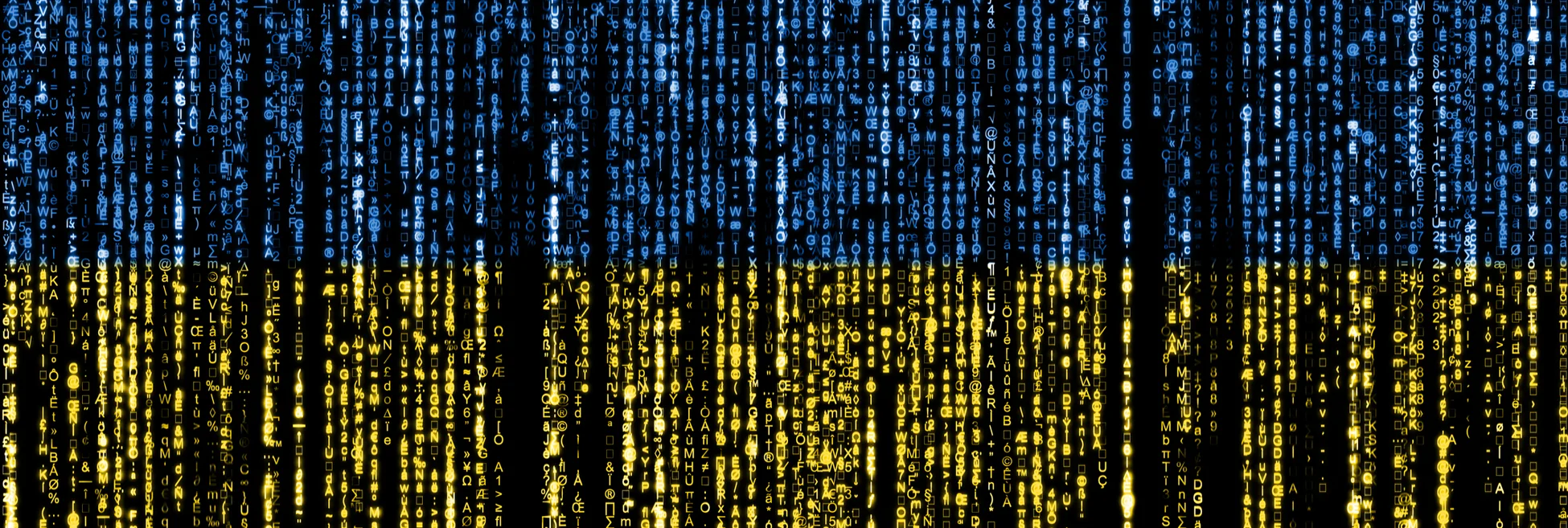
How Russia’s war on Ukraine impacts the global IT industry
Businesses with staff based in Ukraine reckon with an unprecedented juggling act.
In Western Ukraine, Konstantin Vasyuk joins a Zoom call—a meeting rescheduled from the day before, when the region had temporarily lost internet connection, an occurrence not exactly rare, even during “normal times.”
More than most, though, Vasyuk knows he’s not living in normal times. At the time we speak, it has been 65 days since Russia initiated military attacks on greater Ukraine, outside of the eastern Donbas region, which has seen regular conflict since Russia’s annexation of Crimea in 2014.
As executive director of the IT Ukraine Association, the largest tech association in the country, Vasyuk is responsible for managing operations for the organization, which is meant to further the IT sector in Ukraine through government relations and collaboration with state officials, implementing educational and social projects, providing public relations and legal support for members and partners, and helping companies secure business contracts in broader European and US markets.
And one day, in perhaps the largest expansion of its roles to date, the network Vasyuk helps operate became one filled with safe passage coordinators, humanitarians, refugees, and even some military soldiers and aides.
“This is a complex issue because we are highly motivated to be alive, to be safe. And it means for us also to keep our obligations and commitments to our customers,” Vasyuk says. “Now we see, more or less, it’s safe. We have a good infrastructure, more or less. We have a high level of motivation and efficiency, so why don’t we work as we work? It’s very simple and complicated at the same time.”
The war in Ukraine has highlighted the challenges of companies that open satellite offices in financial hubs outside of New York, London, and Hong Kong; the need to expand their global footprint to fill vital engineering and programming roles, and avoid disruption. As firms look to do more with a growing deluge of data, it is becoming increasingly difficult to find affordable software developers—and Eastern Europe has proven a fertile region for tech talent.
Ukraine is home to about 250,000 to 300,000 IT professionals, and the industry is integral to the country. For its part, the Ukraine IT Association represents 77,000 individuals across 113 companies, 10 of whom joined in April alone. Many of them—60% to 70%, Vasyuk says—were relocated abroad shortly before the war began, as part of business continuity plans. Others moved to shelters when the air sirens sounded and continued their work.
“We have been living in this state of danger and war since 2014. And this is why our business needed to be ready for scenario A [or] scenario B, and these crisis plans were implemented,” Vasyuk says. “The answer lies in that we were ready for some unexpectable, or expectable but very risky, changes in the environment.”
By mid-April, the company had processed more than 150 inquiries from members, requesting assistance with mobilization, relocation of specialists and border crossing, and corporate social responsibility initiatives, such as lending support to the Ukrainian army and refugees, according to its Q1 2022 report. It had also created a landing page for relocation, having analyzed 10 countries for their quality of life and supplied a calculator for entrepreneurs, a service for comparing the conditions of relocation, and a help directory. Forty percent of the inquiries received through the landing page were about business and team relocation.
IT Ukraine Association had also received verification among Ukrainian volunteer organizations and begun providing the technical support for ukraine-helpers.com, an information hub of verified aid collection centers and donation centers.
Vasyuk also notes that many of the apps and hardware used around the world are developed in Ukraine, unbeknownst to those using them.
“Ukraine is a provider of high-quality [services], of delivery, affordable prices, and, of course, a high level of creativity,” Vasyuk says. “For example, Mercedes is one of my favorites. You can take the Mercedes S-Class vehicle, and all infotainment and all related to code and hardware, is developed and done in Ukraine. Of course, they’re produced in Germany and other countries, but the software and product development were done by Ukrainians.”
Lessons and extraordinary measures
IT Ukraine Association has several verticals, the largest of which is fintech. One member is DataArt, a global software engineering firm that has crafted systems for the likes of Nasdaq and European online trading provider Monex. In addition to its offices in New York, Bulgaria, Poland, and Argentina, it has six Ukrainian offices located in Kyiv, Lviv, Kharkiv, Dnipro, Odessa, and Kherson. DataArt employs roughly 2,500 people across the country. While it has avoided government contracts in Russia, DataArt has ceased all investment, hiring and business development activities there, too.
“It’s just incredible to see how people mobilize in difficult times,” says DataArt managing director Alexei Miller. “You see people who are in the IT business all of the sudden transform themselves into logistical experts or deliver medicine to those in need. It’s a shared humanity that has nothing to do with capital markets IT, but these extraordinary times have shown me some extraordinary things in people.”
Miller is based in New York. He joined the company in 1997 and has never left. In his 23 years, he has overseen business development, sales, and management of key accounts. But this year, he also became responsible for helping move his Ukrainian colleagues across or out of the country.
Recently, he has found himself oscillating between a sense of helplessness—being stationed nearly 5,000 miles away from Ukraine and those suffering on the ground—and the recognition that despite the distance, his company has financial resources, communication channels, and a captive Western audience through the client base, all of which can provide aid.
“It remains stressful for sure. Difficult. Some of us are doing work we never imagined doing, but part of my job is reminding myself and others that in the medium to long term, the best help we can provide to Ukraine and to Ukrainians is continuing to provide jobs and income,” Miller says.
Some of DataArt’s clients agreed to pay for its services while many members of its staff were unable to work, seeking safer destinations and routes. Others have offered financial assistance to those who now have to set up new lives, whether temporary or not, in foreign countries. Many of the company’s Ukraine-based female employees went abroad. Many of the men moved from the East to Western or Central Ukraine, after the government banned those aged 18 to 60 from leaving the country.
The cost of the war has been great thus far for DataArt and companies like it. And Miller expects the Eastern European IT landscape to look different when the conflict ends. While it’s difficult to guess how many Russian engineers will leave the country and pursue opportunities free of sanctions abroad, he anticipates an outflow of Ukrainian engineers. He says countries that open visa and immigration programs allowing Ukrainians and Russians to settle there will receive an influx of IT talent, which will come with tax revenues and support for local IT ecosystems.
“We would like our clients to continue working with our teams in Ukraine. We would like them to imagine a future in which Ukraine continues to be part of their global IT supply chain even though, right now, some parts of the country are outright war zones. That is our mission; that is our challenge. We have to do it,” Miller says.
He adds that the war brings lessons for banks’ and asset managers’ emerging market plays, especially those who have staked their bets on singular or concentrated locations. DataArt, for its part, is making large investments into Latin America by opening new facilities and “hiring people by the hundreds,” Miller says.
“When you’re dealing with emerging markets, we just got a demonstration, and in the most tragic way, of how risky that strategy is. … I think the focus on this risk-vs.-efficiency equation will change quite significantly,” he says.
Other Ukrainian or Ukraine-linked companies woven into the capital markets IT ecosystem include names like Luxoft, development shop EPAM Systems, and Exactpro, all of which have issued public statements condemning the war, while announcing monetary, humanitarian, and logistical support to Ukraine-based employees.
Iosif Itkin, co-CEO and co-founder of Exactpro, said that while no amount of salary can help someone in a bomb shelter or move them to safety, the company is continuing to pay all its Ukrainian specialists regardless of whether or not they’re currently able to work, and it is helping those who have fled the region with settling into its other locations, which include Armenia, Georgia, Lithuania, Sri Lanka and the UK.
“We expect a rapid growth of the IT community in Armenia and Georgia and their evolution into strong IT hubs. Some companies even mentioned that Tbilisi, Georgia, is already overcrowded with software specialists. Regardless of the outcome of the current horrible events, Russia is unlikely to be a sustainable location to deliver the service to clients for years. Hundreds of thousands of their best specialists are leaving the country, and a large portion of them will not come back. On the other hand, once the war is over, we expect a long queue of companies willing to build their delivery capabilities in Ukraine,” Itkin said in an email to WatersTechnology.
Like DataArt’s new investments into Latin America, Exactpro is increasing its attention to and efforts in Sri Lanka, having recently signed an agreement with the country’s Board of Investment.
“We are quadrupling our office space to relocate and hire hundreds of specialists in [Sri Lankan capital] Colombo. Although the economic situation in the country is difficult at the moment, the nation has so much talent and potential,” Itkin said. “We are confident in our bid on Sri Lanka. Having said so, Ukraine is the forefront of freedom. There will be no safe places on the planet if it will fall.”
Further reading
Only users who have a paid subscription or are part of a corporate subscription are able to print or copy content.
To access these options, along with all other subscription benefits, please contact info@waterstechnology.com or view our subscription options here: http://subscriptions.waterstechnology.com/subscribe
You are currently unable to print this content. Please contact info@waterstechnology.com to find out more.
You are currently unable to copy this content. Please contact info@waterstechnology.com to find out more.
Copyright Infopro Digital Limited. All rights reserved.
As outlined in our terms and conditions, https://www.infopro-digital.com/terms-and-conditions/subscriptions/ (point 2.4), printing is limited to a single copy.
If you would like to purchase additional rights please email info@waterstechnology.com
Copyright Infopro Digital Limited. All rights reserved.
You may share this content using our article tools. As outlined in our terms and conditions, https://www.infopro-digital.com/terms-and-conditions/subscriptions/ (clause 2.4), an Authorised User may only make one copy of the materials for their own personal use. You must also comply with the restrictions in clause 2.5.
If you would like to purchase additional rights please email info@waterstechnology.com
More on Trading Tech
Recent volatility highlights tech’s vital role in fixed income pricing
MarketAxess’ Julien Alexandre discusses how cutting-edge technology is transforming pricing and execution in the fixed income market amid periodic bouts of volatility
Banks fret over vendor contracts as Dora deadline looms
Thousands of vendor contracts will need repapering to comply with EU’s new digital resilience rules
Where have all the exchange platform providers gone?
The IMD Wrap: Running an exchange is a profitable business. The margins on market data sales alone can be staggering. And since every exchange needs a reliable and efficient exchange technology stack, Max asks why more vendors aren’t diving into this space.
This Week: Trading Technologies completes ANS deal; State Street; Equinix; and more
A summary of the latest financial technology news.
Interactive Brokers looks beyond US borders for growth opportunities
As retail trading has grown in volume and importance, Interactive Brokers and others are expanding international offerings and marketing abroad.
JP Morgan’s goal of STP in loans materializes on Versana’s platform
The accomplishment highlights the budding digitization of private credit, though it’s still a long road ahead.
As data volumes explode, expect more outages
Waters Wrap: At least for those unprepared—though preparation is no easy task—says Anthony.
This Week: ICE Bonds and MarketAxess plan to connect liquidity networks, TS Imagine, Bloomberg, and more
A summary of the latest financial technology news.








